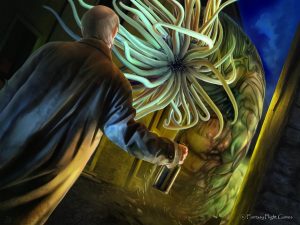The media are brimming with reports about Esteban Santiago, the 26-year-old man who opened fire at the Fort Lauderdale airport, killing five people and wounding eight. Federal officials are investigating whether the gunman was mentally disturbed and heard voices in his head telling him to commit violent acts.
Mr. Santiago was reported to have walked into an Anchorage F.B.I. office in November 2016, and made disturbing remarks prompting officials to urge him to seek mental health care. He was reported to have appeared “agitated and incoherent,” saying “his mind was being controlled by a U.S. intelligence agency.” When he visited the F.B.I. office, his statements were described as “disjointed.” Interviewing agents contacted local authorities who took him to a medical facility for evaluation.
Since the shootings, reports have surfaced saying Mr. Santiago was discharged in August from the Alaska Army National Guard for “unsatisfactory performance.” He was noted to have been deployed to Iraq in 2007, where he spent a year clearing roads of improvised explosives and maintaining bridges. He did not see combat and was awarded a Meritorious Unit Commendation.
As described by the New York Times, his brother noted “that Esteban had recently been hallucinating and was receiving psychological treatment.”
This horrific case highlights matters which have recently received a good deal of focus: gun laws, air travel safety, mental health issues, terrorism, and the role of wartime combat in precipitating debilitating symptoms of mental disorders, foremost among them being PTSD.
Alternately, officials are considering the possibility that Mr. Esteban may have been inspired by terrorist groups, including the Islamic State.
As a psychiatrist, I contend Mr. Esteban is not suffering from PTSD, nor was he radicalized by ISIS. Instead, Mr. Esteban developed a serious psychiatric disorder: Schizophrenia, Paranoid Type. What is known thus far is that the onset of his symptoms—delusions and hallucinations—occurred in his 20s, which is the usual age schizophrenic symptoms make their appearance. It’s also clear that he was hearing voices—experiencing auditory hallucinations—and they were command hallucinations, ordering him to commit acts of violence.
It’s also clear from reports as early as November 2016 that he was “agitated and incoherent” when he appeared at the F.B.I. office. Such disjointed speech is typical of many schizophrenic patients in the process of decompensating.
Lastly, most revealing is the New York Times’ report describing Mr. Santiago as believing “that his mind was being controlled by a U.S. intelligence agency.”
A belief that one’s mind is being controlled by some outside force, or evil thoughts are being inserted into one’s head, is a classic symptom of severe schizophrenia.
Understandably, law enforcement officials are trying to determine if Mr. Santiago was inspired by terrorism, just as some might conclude his service in Iraq brought on mental illness and his violent actions.
But such thinking is misguided.
Schizophrenia, in any of its forms, is a severe mental disorder in which people abnormally interpret reality. Schizophrenia often involves a combination of hallucinations, delusions, disordered thinking and bizarre behavior that impairs daily functioning.
While it’s not known precisely what causes schizophrenia, researchers believe a combination of genetics, brain chemistry and environment contributes to the development of the disorder.
Problems with certain naturally occurring brain chemicals, including the neurotransmitters dopamine and glutamate, may feed into schizophrenia. Neuroimaging studies show differences in the brain structure of people with schizophrenia compared to normal brains. While the significance of these anomalies isn’t yet fully understood, it indicates schizophrenia is a brain disease.
It’s incorrect to point to Mr. Santiago’s army service and to terrorism as “causes” of his illness. Nor did they precipitate his condition. He was a compromised individual who was in the process of a slow and inexorable downward drift into madness. In his decompensated state, he may have recruited the Islamic State or recent news items about the U.S. intelligence community into his thinking; but these external issues did not cause, bring about, worsen, or precipitate a psychiatric illness already beginning to express itself within Mr. Santiago’s disturbed mind. Though his brother maintains that Mr. Santiago was in “psychological treatment,” it’s common for such patients to be non-compliant with their medication regimens. Without proper treatment, Mr. Santiago’s malignant illness culminated in the horror of the Fort Lauderdale airport massacre.





Leave a Reply
You must be logged in to post a comment.